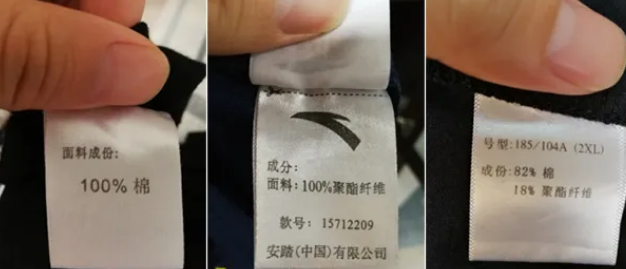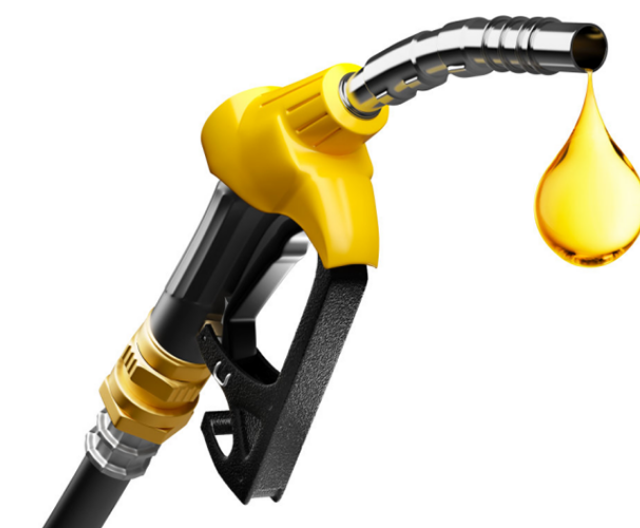What is the value of oil as the blood of industry?
There is such a treasure, it can be the chewing gum in your mouth, it can be your cool silky T-shirt, it can be the energy source in your car, or it can be the colorful paint in your room. Some countries have become rich because of it, and some countries have been at war for years. It is the protagonist we want to introduce today - oil. It is a dark brown viscous liquid composed of various hydrocarbon mixtures, and is a precious resource known as "black gold" and "industrial blood". Shen Kuo, an outstanding scientist in the Northern Song Dynasty of China, mentioned in his book Mengxi Pen Talk that "鄜, there is oil in Yanshan... It is like Chun paint, burning like hemp, but the smoke is very thick, and the tent is very black... This thing will be great in the world." Hence the name "oil". Now it seems that oil has indeed infiltrated every corner of our lives, and we eat, wear, live, and travel are closely related.

551 kilograms of oil will be eaten in a person's lifetime. The black paint, you can eat the black oil? I'm sure you all have this question. Of course, the oil just extracted from the oil field is absolutely not to eat, because it contains a variety of highly toxic organic compounds, such as a class of carcinogens - benzene. However, after further processing of oil, it is inseparable from our "eat". If the crops on the land want to grow and flourish, they cannot be separated from fertilizers to supplement the nutritional elements, because the natural organic fertilizers in nature alone have long been unable to meet the needs of agricultural production. So people have gradually explored and developed ways to synthesize fertilizers by chemical methods. Fertilizer is the use of petroleum and natural gas as raw materials for industrial synthesis of ammonia, and further production into ammonium nitrate, ammonium sulfate, urea and other important nitrogen fertilizer, to provide important nitrogen elements for plant growth. So the increase in food production, which has kept the world's 7.5 billion people fed, is largely due to oil. In addition, the artificial food flavors and colors added to the colorful cream on the birthday cake also come from oil. And then there's chewing gum, and then there's oil. The reason why chewing gum is not chewable is because the gum base component plays a role, and the preparation of the main component of the gum base, polyvinyl acetate, requires petroleum derivatives. Even medicine can't be made without oil. Many drugs, for example, are derived from benzene, which is made from petroleum. So it can be said that we are indirectly eating "oil" every day. A careful calculation, a person's life is about to "eat" 551 kilograms of oil.
We wear 290 kilograms of oil in our lifetime. When we wear a T-shirt in summer, we pay attention to whether it is pure cotton. If you wear a woolen sweater in winter, you will care whether it is pure wool, because pure cotton T-shirts are breathable and comfortable, and pure woolen sweaters are soft and warm and elastic. But you know, these natural fibers are completely unable to meet the needs of human clothing. In the fibers used in textiles, natural fibers (cotton, hemp, silk, wool, etc.) account for only 1/4, and the proportion of chemical fibers (polyester, nylon, acrylic, polypropylene, Vinylon and chlorylon, etc.) is close to 3/4, and more than 90% of chemical fiber products are from petroleum. In total, the amount of oil spent on "wearing" in a person's life reaches 290 kilograms. For example, although we usually prefer to use pure cotton fabrics in casual clothing, but in most sports clothing, it is rare to see pure cotton fabrics, but often see fabrics such as 100% polyester fiber, 82% cotton +18% polyester fiber. This is because although pure cotton fabric is soft and comfortable, it is hygroscopic and easy to absorb a lot of sweat emitted during exercise and stick to the body, and the comfort is greatly reduced. More importantly, the elasticity of pure cotton fabric is very poor, and it can not meet the needs of large movements of intense exercise. In contrast, polyester fabric, also known as dacron, dacron, poor water absorption, exercise sweat will drip down without too much stick to the clothes. Also based on the poor water absorption of polyester fiber fabrics, sportswear is generally easier to clean and dry quickly after washing. More importantly, polyester fabric is very flexible, can meet the movement requirements required for sports, so you can enjoy the ride on the sports field. The chemical components of polyester fiber - polyethylene terephthalate (PET) synthesis raw materials - terephthalic acid and ethylene glycol, mainly from petroleum cracking products directly or indirectly obtained. Petroleum heating cracking to obtain toluene, xylene and ethylene, etc., after chemical processing can get terephthalic acid and ethylene glycol, both through esterification condensation can get polyethylene terephthalate, that is, polyester fiber, dacron or dacron.

A person's life to "live" 3790 kilograms of oil home everywhere is oil! If you look around our homes, you can say that oil is involved everywhere. The amount of oil spent on "living" in a person's life is nearly 3,790 kilograms. The first is that all plastic products we can touch, without exception, come from oil. For example: polyethylene (PE) used in plastic wrap and food bags; Ethylene is used in the preparation of polyvinyl chloride (PVC) for kitchen, bathroom pipes and wire and cable skins. The most important source of ethylene is the cracking of petroleum, and the world has taken ethylene production as one of the important indicators to measure the development level of a country's petrochemical industry. Polypropylene (PP) used in the manufacture of water basins, microwave crisper, etc.; Polystyrene (PS), which is used to make lampshades, instant noodle boxes, and disposable lunch boxes, and polyethylene terephthalate (PET), which is used to make beverages and mineral water bottles, are all products of petrochemicals. It's hard to imagine a world without plastic. Even non-plastic products can not be separated from the shadow of oil. For example, the paint on the surface of walls and furniture should use oil; Cleaning products, such as facial cleansers, shampoos, detergents, etc., are also derivatives of petroleum. Oil is even the raw material for making cosmetics, and more than 90% of cleansers and cosmetics on the market currently contain mineral oil, as well as petroleum jelly, paraffin, flavor, etc., which are derived from petroleum. Grab your serum, face cream, lipstick and see what's in it.

The reason why we can travel faster and faster, travel thousands of miles a day, oil plays a very important role, a person's life is about to spend 3838 kilograms of oil on the "line". In addition to the gasoline and diesel that are "eaten" by vehicles and the aviation kerosene that is "eaten" by aircraft, the asphalt that is laid on roads also comes from petroleum, which is the residue after crude oil is refined into gasoline, diesel and kerosene. At the same time, if you want the machinery to run smoothly, you need lubricating oil or grease to maintain and protect the machinery and reduce mechanical wear, otherwise they are not far from becoming scrap metal, and lubricating oil or grease is also petroleum products. Tires need synthetic rubber, and the large number of raw materials required, such as ethylene, propylene, butene and aromatic hydrocarbons, are also mainly from petrochemicals. The monomer for the production of synthetic rubber is obtained from petroleum and polymerized to form a macromolecular solid with high elasticity. Synthetic rubber tires have good insulation, good air tightness, oil resistance, high temperature resistance, low temperature resistance, and are widely used.

Oil has such an important position that it is called the "blood of industry" and deserves its name. What we are familiar with is providing fuel for the engine, which is the most elementary application of oil, so much so that Tesla CEO Elon Musk once said: "Oil is so precious, you even burn it." With the advent of ethanol gasoline, we seem to be seeing the fuel burden of oil being gradually shared. I believe that through the efforts of scientists, the role of oil as a fuel will eventually become a glorious history. And its special and lofty status as the "blood of industry" will continue...
- ABB
- General Electric
- EMERSON
- Honeywell
- HIMA
- ALSTOM
- Rolls-Royce
- MOTOROLA
- Rockwell
- Siemens
- Woodward
- YOKOGAWA
- FOXBORO
- KOLLMORGEN
- MOOG
- KB
- YAMAHA
- BENDER
- TEKTRONIX
- Westinghouse
- AMAT
- AB
- XYCOM
- Yaskawa
- B&R
- Schneider
- Kongsberg
- NI
- WATLOW
- ProSoft
- SEW
- ADVANCED
- Reliance
- TRICONEX
- METSO
- MAN
- Advantest
- STUDER
- KONGSBERG
- DANAHER MOTION
- Bently
- Galil
- EATON
- MOLEX
- DEIF
- B&W
- ZYGO
- Aerotech
- DANFOSS
- Beijer
- Moxa
- Rexroth
- Johnson
- WAGO
- TOSHIBA
- BMCM
- SMC
- HITACHI
- HIRSCHMANN
- Application field
- XP POWER
- CTI
- TRICON
- STOBER
- Thinklogical
- Horner Automation
- Meggitt
- Fanuc
- Baldor
- SHINKAWA




































































































































